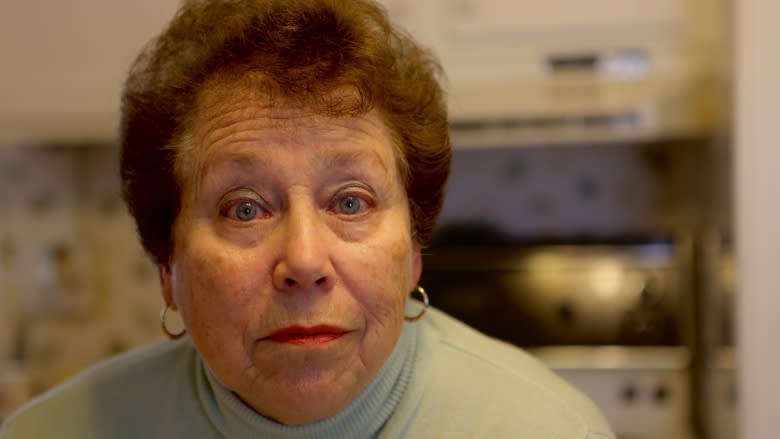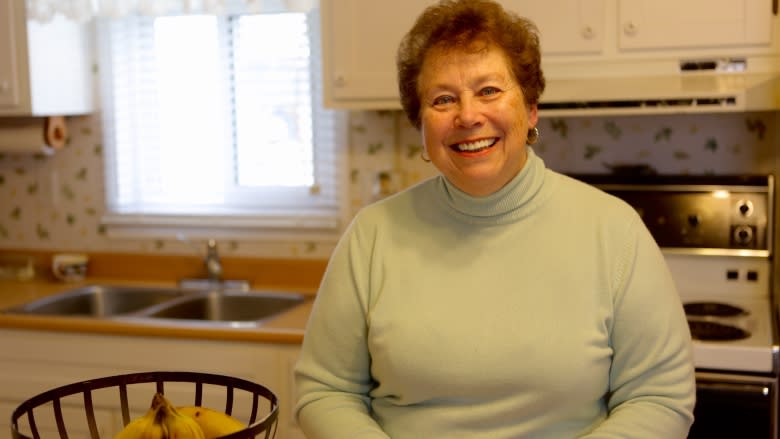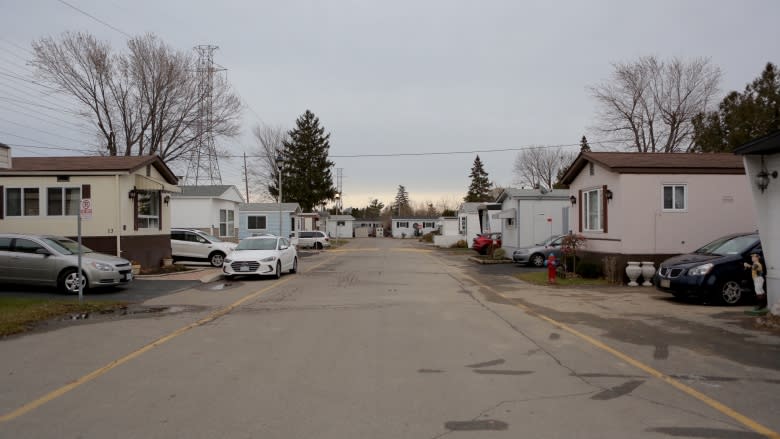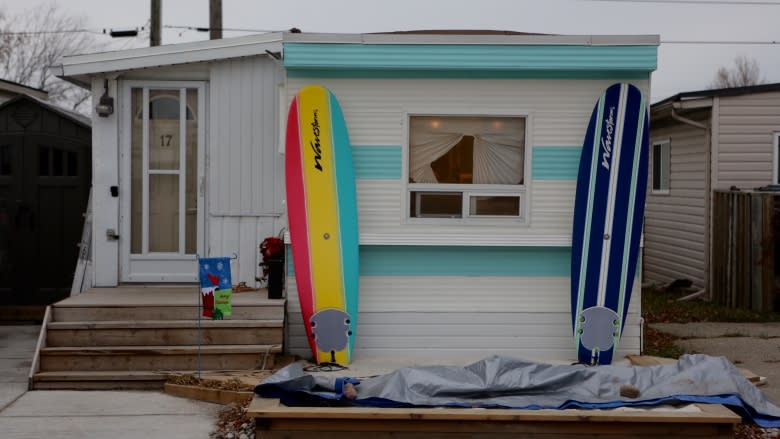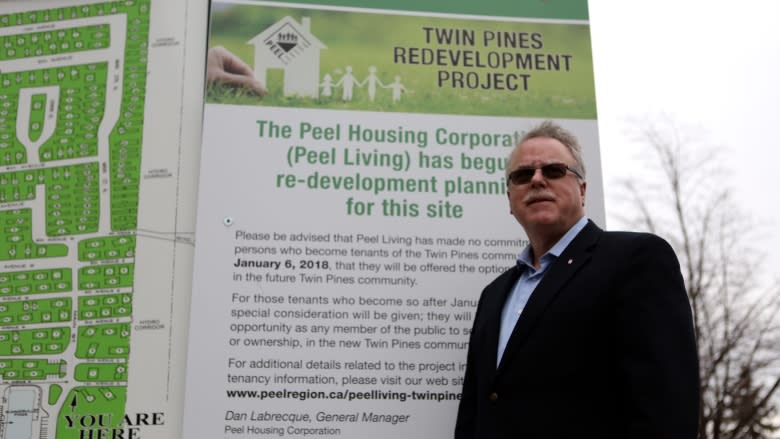Can't sell, can't move: Owners stuck with 213 'worthless' mobile homes as Peel moves to develop land
More than 200 homeowners are now awaiting a formal eviction from their mobile home park following a vote that approved a compensation package at a Peel housing board meeting Thursday morning.
Marlyn Addai and a couple dozen of the mobile homeowners travelled to Region of Peel Headquarters to watch the vote.
The transition package includes $31,000 for residents and Peel will now move forward with redeveloping the nine-hectare mobile home park. The residents will be given the option to take the compensation and rent or buy in the redevelopment, or not take the money and get subsidized rent based on their income.
"I'm feeling pretty depressed," Addai said following the vote.
Addai says up to 40 per cent of people in the park still have mortgages, and they were hoping to get the compensation and access to a housing subsidy.
"To cover people's unexpected expenses, seeing how we lost the value of our home, but that didn't fly either," she said. "How do you pay a mortgage and go and pay rent somewhere else, too? You can't do it!"
Like 212 others, Addai owns her 1,000-square-foot mobile home in Twin Pines Mobile Home Park in Mississauga. Since 2001, she's rented the land from the Region of Peel and is now the president of the park's residents' corporation.
"Everybody's first reaction is, 'Wow, I didn't know you had so much space in here.' They think of a trailer and that's a no-no word with us," she said.
Mobile homeowners loaned Peel $1M to help buy park in 1996
Twin Pines is believed to be one of the last mobile home parks in the Greater Toronto Area and was built over an old apple orchard in 1949.
In 1992, the original landowners shocked residents when they said they were selling. In 1996, the mobile homeowners rallied together to raise $1 million, which they loaned to Peel to help it buy the land in return for a 20 year lease.
Can't sell, can't move, $31K compensation 'not enough'
In 2010 Peel Living — also known as Peel Housing Corporation, the housing branch of the Region of Peel — told residents they would not renew the lease and planned to redevelop the land. And in 2016, the agreement expired.
Addai and her husband purchased their home in 2001 for $76,000 and put in $60,000 in upgrades. She worries she'll lose everything.
"It felt like someone hit me in the stomach ... This was the investment, this was the nest egg. And now we're being told our homes are worthless."
Addai said residents are in a "quandary" because moving mobile homes can cost as much as $25,000 and, even if they could afford that, there's no other mobile home park in the GTA accepting new modular homes.
More than 60 per cent of the residents are seniors on fixed incomes, according to city statistics.
Not fair to pay for their 'lifestyle,' Peel Living GM says
Under the Residential Tenancies Act, the landlord, in this case Peel Living, is required to give each mobile home owner at least $3,000 and one year's notice.
The general manager for Peel Living says the infrastructure under the mobile home park is outdated and would cost $7- to-$10 million to replace.
"Well, that means the taxpayer in Peel basically pays to maintain the lifestyle that they've become accustomed to. That's not fair either," said Peel Living general manager Dan Labrecque. "The primary focus is helping people get off the [social housing] waitlist."
Currently, 14,000 families and individuals are on the waiting list in the Region of Peel and Labrecque anticipates, once torn down, they could add 400 social housing spots and 600 private units at the 23-acre Twin Pines site.
Peel Living says people forced out of Twin Pines will have a right of first refusal for a spot in one of those units.
Lebrecque recognizes there likely aren't many options for mobile homeowners to sell or move their homes elsewhere.
"That's probably the biggest issue, they believe we should buy them. I'm in the affordable home business, I'm not in the mobile home buying and selling business," Labrecque said.
He added the region is offering to pay approximately $10,000 for the homes to be destroyed, a cost the homeowner is responsible for, according to the current lease agreement.
'Nightmare all over again,' longtime resident says
Since 1963, May Stewart, 75, has lived with her husband in the mobile home park. She was part of the group of residents in 1992 who fought to stay in the park.
"We've been living this nightmare all over again, but only we're fighting with Peel Living and all the big shots," Stewart said, looking at newspaper clippings from the '90s in her kitchen.
In 1992, the residents approached Peel to help them and were thrilled in 1996 when the deal was struck to allow them to stay for 20 years, she said.
"We thought Peel Living was really the people we could trust to do what was right for our park."
Coun. Chris Fonseca, who represents the area and is also a councillor for the Region of Peel, voted against redeveloping Twin Pines back in 2012. She also happens to be the director of the Peel Living board.
Now that the redevelopment is happening, she says her priority is to ensure residents can stay in the redevelopment and she hopes some mobile homes can stay there.
"I'm going to continue to look through options to ensure and question whether or not this is the value, the true value, of the homes," said Fonseca.

